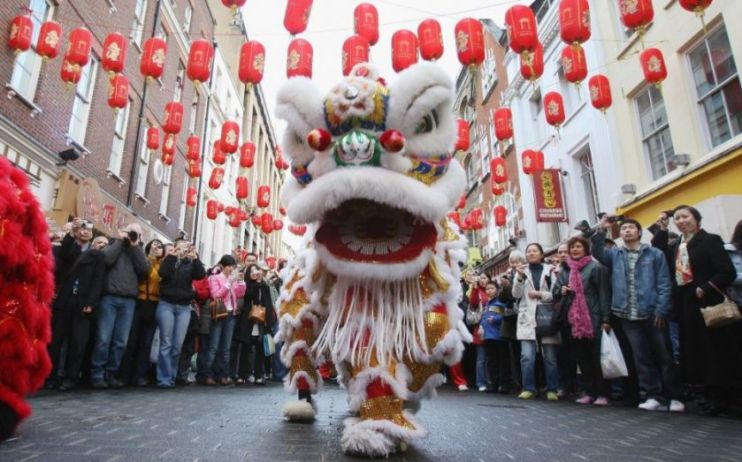How the Chinese New Year and covid rule changes could give a tourism boost to London’s West End

London’s West End is looking forward to the return of Chinese tourists this month, after the easing of the nation’s zero-Covid policy – ahead of the Chinese New Year.
China has seen a surge in Covid infections in recent months, with EU countries introducing testing requirements for travellers.
Travel from and to China will be made easier from Sunday 8 January, with luxury retailers in the UK hoping this will result in a flurry of tourists splashing their cash.
Luxury retailers in the West End are expecting to see a boost to sales thanks to released pent-up demand from next week, as tourists return to the country’s shopping heartland.
Luxury goods’ share prices dropped drastically in 2022, driven by concerns over China’s lockdowns curbing sales, according to Bloomberg Intelligence.
British firm Burberry’s shares have leaped in response to the news, kicking the designer fashion brand near to the top of the FTSE 100 in recent days.
Lockdown rules suppressed first-half sales by about 30 per cent on the mainland of China and more than 10 per cent globally, Bloomberg Intelligence’s senior luxury analyst, Deborah Aitken, said.
“China could regain the world’s largest tourist role,” Aitken added.
Opening up once more
China is the world’s largest outbound market and tourists made up 11.6 per cent of international travellers globally in 2019, on the eve of the Covid-19 pandemic.
Spending from China was on the up before the pandemic, particularly in luxury, according to Wizz Selvey, founder and CEO of retail insights firm Wizz&Co.
“The Chinese consumer loves to discover British and European brands in London, particularly lines or limited edition items from brands they can’t access at home,” Selvey told CityA.M.
Sales are likely to pick up among key products like accessories, particularly handbags, fashion and beauty, with a preference for luxury skincare.
The easing of restrictions signals good news for retail destinations further afield too, such as Bicester Village, with announcements at Marylebone train station in Mandarin, Selvey said.
Chinese New Year
Celebrations of Chinese holidays such as Chinese New Year and Single’s Day, by department stores and luxury retail hot-spots like Bond St, are also likely to make a return.
“It was an opportunity for retailers to take advantage of Chinese consumers wanting to shop for gifts, or spending the money they were gifted on luxury items,” Selvey added.
The West End’s recovery from the side effects of the Covid-19 pandemic is “currently being held back by a lack of high spending international visitors,” Dee Corsi, chief executive of New West End Company admitted.
A quarter of visits to the West End in 2019 were from international visitors, accounting for nearly half of all spending.
While “balance and proportionate” testing measures have been introduced, the West End business group boss said she hoped “close attention is applied” to ensure the process does not discourage visitors.
Covid concerns
Travel requirements should be kept “simple and sympathetic as possible” to help encourage the return of tourism, she added.
It comes as West End businesses and designer brands have called on the UK government to introduce VAT-free shopping for overseas visitors, to lure shoppers to London instead of Paris or Milan.
For long-term economic success, UK ministers must ensure “the nation’s flagship high street” continues to be “globally competitive,” Corsi said.
She added: “There are simple routes to achieving this – exploring a simplified visa process, reintroducing tax-free shopping and extending Sunday trading hours.”
Tourists often fork out in different areas to the domestic consumer, Danni Hewitson, financial analyst for AJ Bell, told CityA.M.
“Although luxury brands have weathered the inflationary storm better than most, there will be plenty of hospitality and leisure businesses that are still operating at below pre-Covid levels,” she said.
While European travellers have “helped fill the void”, staying close to home has “lost its allure somewhat,” Hewitson said.
“The big question is how confident is the Chinese consumer feeling after their months of isolation, and will habits have changed in the intervening period?”